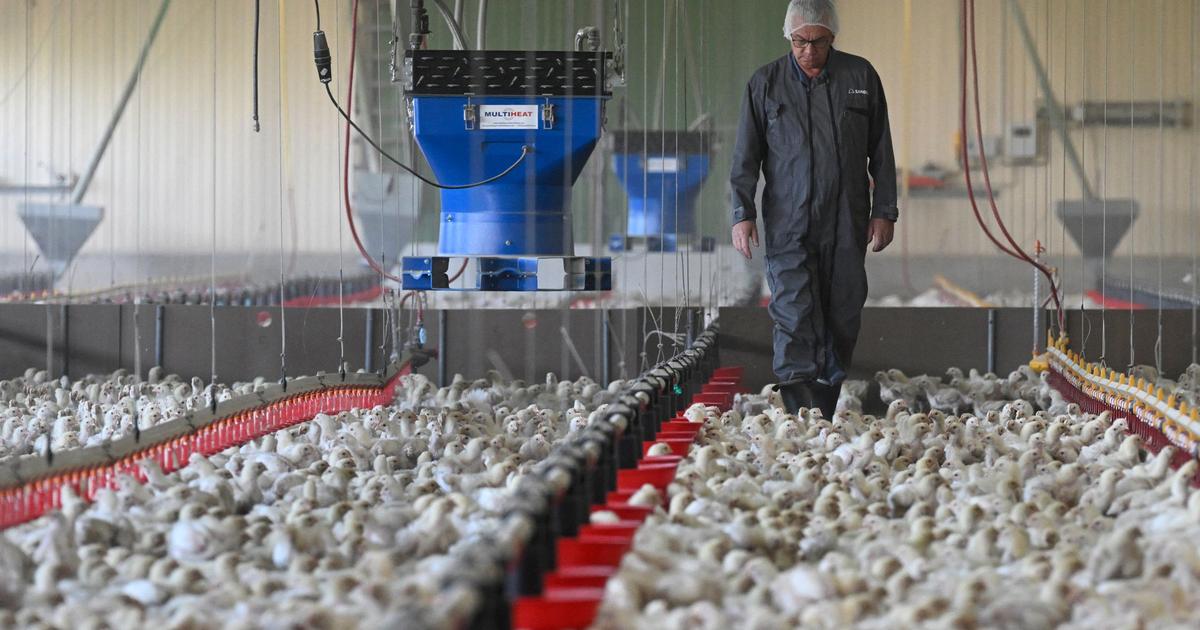“Requiring meadows to be reintroduced, even to farms that no longer have animals, is definitely a Brussels idea.”
For Arnaud Rousseau, president of the FNSEA, the leading agricultural union, as in the ranks of breeders, cereal growers, beet growers and fruit and vegetable producers, the observation is the same.
Getting on your tractor, modernizing your buildings, maintaining your hedges and ditches or building a water reservoir becomes a real headache.
Between the thousands of rules governing peasant work, from the rural code to the environmental code to the forestry code, the approximately 390,000 French farmers are losing their Latin.
This is the case in poultry farms.
According to the project, approved in trilogue in Brussels, to modify the European directive on industrial emissions (IED), the size of the farms concerned by this measure governing polluting discharges is about to be lowered, going from 40,000 to 21,500 poultry.
With significant additional costs to comply with these standards: around 50,000 euros per farm, just for adequate ventilation systems.
Even more than the additional costs, it is the differences in treatment which exasperate the campaigns.
Whether they are between France and its European neighbors or within Ferme France itself.
Originally affected by the Brussels project, cattle farms will ultimately be exempt, but not pig or poultry farms.
Even within the sectors, inconsistencies abound.
“Chicken buildings will escape these new thresholds, but those of laying hens and turkeys will not.
We don't understand anything anymore...,
despairs Jean-Michel Schaeffer, poultry breeder in Alsace and president of the sector's interprofession (Anvol).
Meanwhile, we import chickens from Ukraine from farms of 2 million chickens, far from having such health requirements.
Also read: “The EU kills its cows, we import meat from Brazil, Mexico and India”: the rant of a farmer
Bans of all kinds
Restrictions on glyphosate when Europe reauthorizes the controversial herbicide for ten years, anticipated ban on neonicotinoid insecticides in beets in 2018, injunction from the new Brussels CAP to leave 4% of land uncultivated for farms of more than 10 hectares, objective of converting 25% of land into organic agriculture by 2030... Everywhere, standards and constraints are accumulating, compromising the ability of farmers to fulfill their nurturing role...
This regulatory bubble weighs on vocations.
“Administrative matters are taking up more and more time.
Managing paperwork, often until 10 or 11 p.m., after a day of work, becomes exhausting,”
says Jean-Michel Schaeffer.
Beyond bans of all kinds, the puzzle extends into the day-to-day management of farms.
As the straightjacket governs the maintenance of hedges, whose role in carbon storage and protection of water reserves is nevertheless recognized.
In France and Brussels, no less than 14 rules concern these plantations.
One prohibits farmers from pruning them from March 16 to August 15.
The reason given (not to disturb bird nesting) is not without meaning.
But applied literally during the high growing season, this rule discourages certain producers from replanting these structuring elements for the countryside.
Normative inflation
Same perverse effect for the cleaning (curing) of ditches, whose normative complexities encourage carelessness... to the point of letting them overflow.
A nonsense deplored, among others, by northern farmers affected by floods, the scale of which they attribute to poor maintenance of water flows.
The management of water resources is full of these sclerosing effects resulting from the normative mille-feuille, with insane delays in bringing projects to fruition.
“Sainte-Soline has monopolized the attention, but nearby, several other water reservoir projects were launched more than ten years ago,”
squeaks Arnaud Rousseau at the FNSEA.
If it takes ten years to retain a few thousand m3 of water, we will never succeed!
» And to recall the 18 to 24 months necessary to succeed in building an agricultural methanizer, compared to half as much for our German neighbors.
Also read: In the land of happy farmers
A few days ago, Christophe Eoche-Duval, State Councilor on a crusade against French normative inflation, summarized this agricultural normative bubble on
While some of these examples might make you smile, the impact on French agricultural power is not neutral.
Since 2006, agricultural France has gone from second to fifth place in the world in terms of exports.
In the beet fields, where the back and forth since 2018 on the use of neonicotinoid insecticides have discouraged many planters, French beet areas have fallen from 485,000 to 400,000 hectares since 2018. A heresy, at a time when the executive has set itself the objective of guaranteeing France's food sovereignty.

